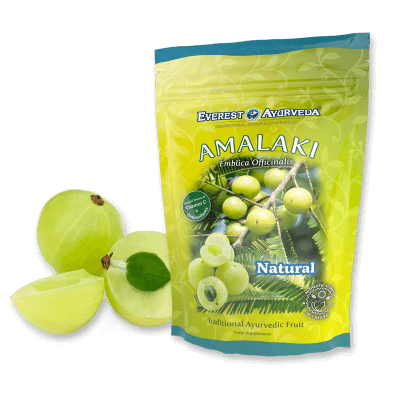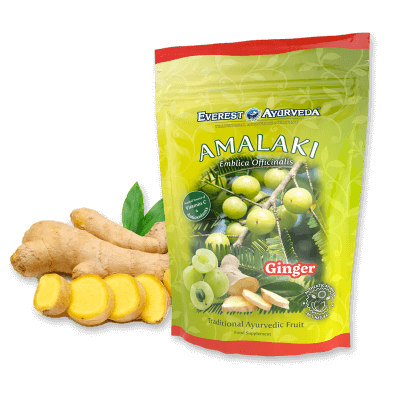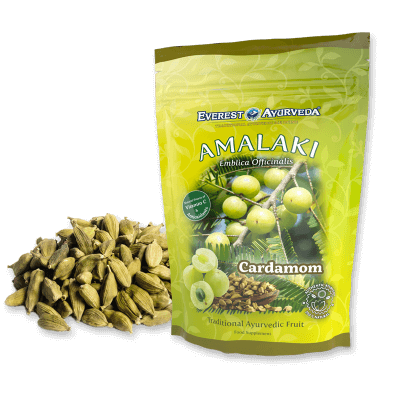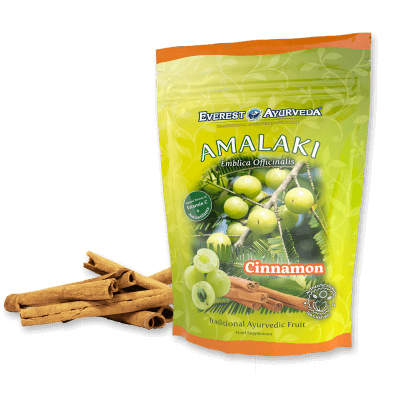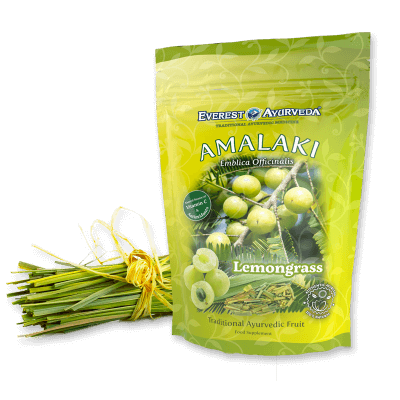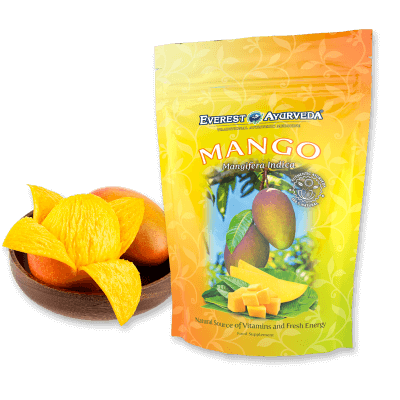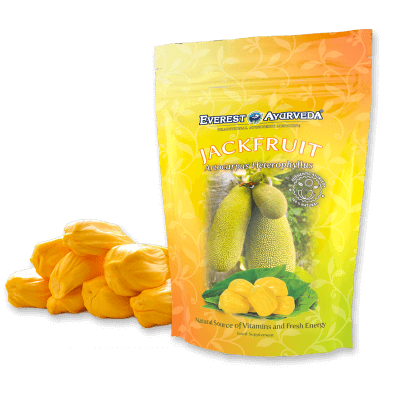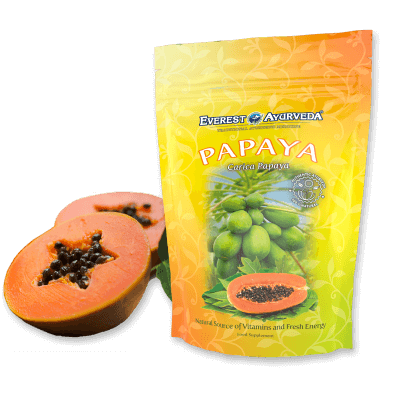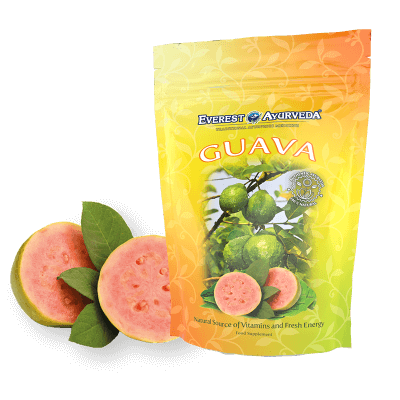Amalaki or Amla act as an excellent tonic for healthy digestion, metabolism, liver, blood, heart and brain activity. The fruit contains five from all six tastes recognised by our sensual perception (sour, sweet, bitter, astringent and pungent) which harmonise three biological principles of Vata, Pitta and Kapha.
Amla contains a broad range of antioxidants (substances decreasing the oxidation processes responsible for cellular aging and necrosis) and bioflavonoids (vitamins supporting the resistance of cell membranes against penetration by harmful substances in the form of free radicals), and a high concentration of vitally important amino-acids. It is rich in many minerals and vitamins, such as calcium, iron, phosphor, carotene, Vitamins C, B1 and B2.
Read more about Amla - a Healthy Snack for Trips and Outdoors.
How are the Ayurvedic fruits processed?
Fresh Ayurvedic fruit is sliced into small pieces, placed in natural light cane syrup serving as the best natural medium for long shelf life, and then dried in the sun. This traditional process helps to maintain the maximum benefit of the nutrients of the fruit, as well as its juiciness and tastiness.
The sugar cane is a huge plant containing up to 20% of sugar in its stalks, which is, as a final product of photosynthesis, composed of sucrose, fructose and glucose. At first it is distilled into a sweet juice, and a form of thick syrup is obtained from squeezed stalks, from which natural sugar cane then arises through a crystallisation process. The Ayurvedic medicine uses it as a medium or environment (anupana) for preparation, use, routing and absorption of better herbal effects. Natural cane syrup occurring in amalaki fruit, mango, papaya, jackfruit, pineapple and banana, supports body tissue nutrition, and serves as an excellent natural preservative.

